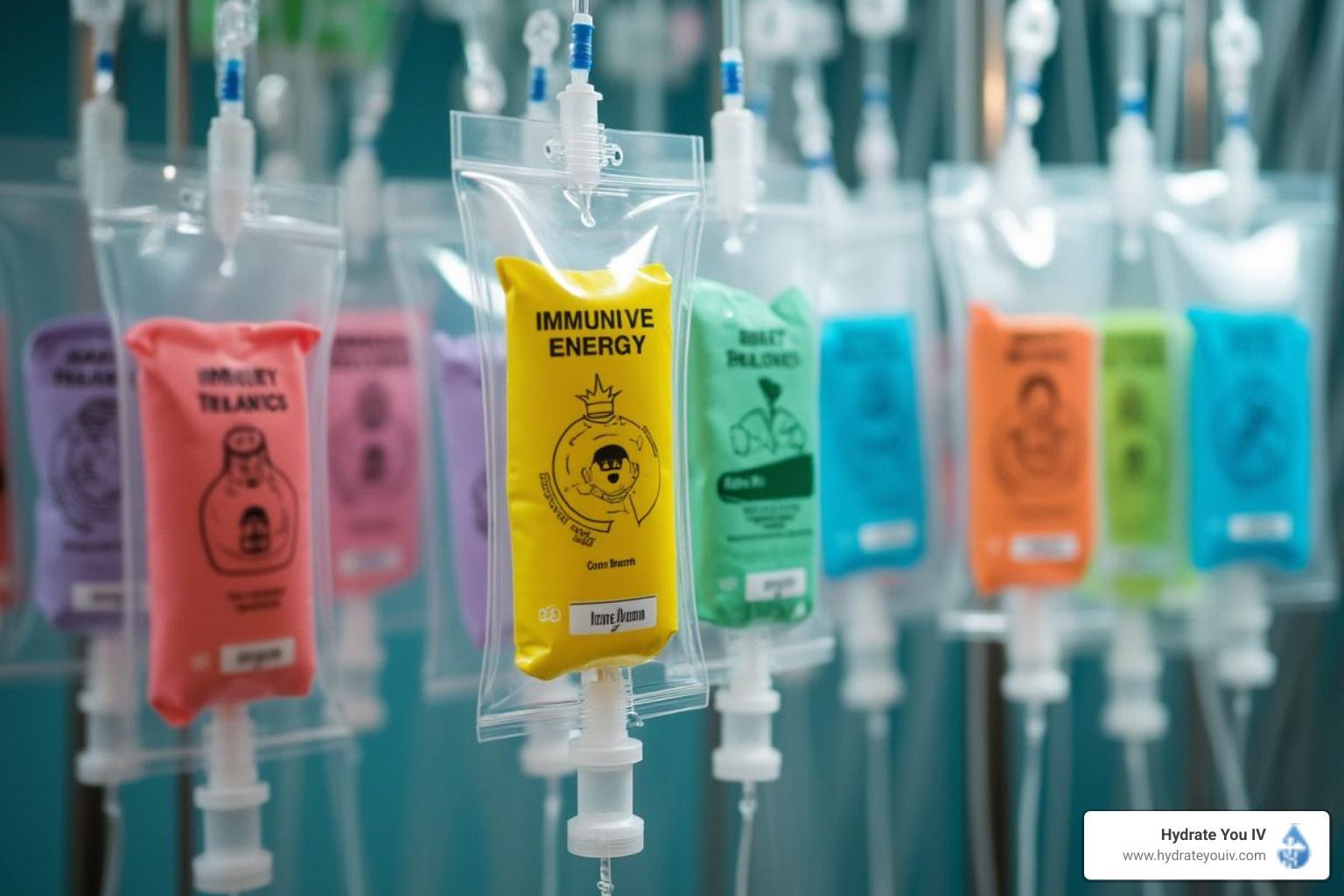B Vitamins Guide: Boost Energy and Brain Health
B Vitamins Guide: Boost Energy and Brain Health

B vitamins play a crucial role in maintaining overall health and well-being. They are essential for various bodily functions, particularly for energy production and brain health. This guide will help you understand the importance of B vitamins, their different types, and the dietary sources from which you can obtain them.
Understanding the Importance of B Vitamins
B vitamins are a group of water-soluble vitamins that play an important role in cell metabolism. They help to convert food into energy, create red blood cells, and facilitate the functioning of the nervous system. Each B vitamin has unique benefits that contribute to our overall health.
Lacking adequate B vitamins can lead to various health issues, including fatigue, irritability, and weakened immunity. Therefore, it is essential to understand their specific roles in the body, particularly in energy production and cognitive function.
Role of B Vitamins in the Body
The B vitamins together assist with multiple bodily functions. They are involved in:
- Energy metabolism
- Nucleic acid synthesis
- Maintaining healthy skin and muscle tone
- Enhancing immune and nervous system function
- Promoting cell growth and division
Due to these vital roles, ensuring a sufficient intake of B vitamins is essential to maintain optimal health. For instance, vitamin B7, also known as biotin, is particularly important for maintaining healthy hair, skin, and nails. This vitamin supports the body’s keratin infrastructure, which is crucial for the strength and resilience of these tissues. Additionally, vitamin B9, or folate, is essential during pregnancy as it helps prevent neural tube defects in developing fetuses, highlighting the importance of these vitamins at different life stages.
B Vitamins and Energy Levels
B vitamins are often known as the 'energy vitamins' for a reason. They assist in converting carbohydrates, fats, and proteins from food into energy that the body can utilize. This energy is essential for both physical activity and mental performance.
Specifically, vitamins B1, B2, B3, B5, and B6 are particularly important for energy production and metabolism. Without enough of these vitamins, individuals may experience feelings of fatigue or lethargy. Moreover, vitamin B12 is crucial in the formation of red blood cells, which transport oxygen throughout the body. A deficiency in B12 can lead to anemia, resulting in decreased energy levels and overall vitality. Thus, maintaining a balanced diet rich in these vitamins can significantly enhance one’s energy and stamina.
B Vitamins and Brain Health
The B vitamins have significant implications for brain health. They contribute to the synthesis of neurotransmitters, the chemicals that transmit signals in the brain. Vitamins B6, B9, and B12 are particularly vital for brain function.
Studies have shown that these vitamins can potentially reduce the risk of cognitive decline, improve memory, and elevate mood. Therefore, they are essential not only for energy but also for maintaining cognitive health as we age. Furthermore, vitamin B12 deficiency has been linked to mood disorders such as depression and anxiety, underscoring the importance of these vitamins in mental well-being. Regularly consuming foods rich in B vitamins, such as leafy greens, whole grains, and lean proteins, can support both brain function and emotional health, creating a holistic approach to wellness.
Different Types of B Vitamins
The B vitamin complex includes several distinct vitamins, each with unique functions and benefits:
- Vitamin B1 (Thiamine): Essential for energy metabolism and nerve function.
- Vitamin B2 (Riboflavin): Plays a critical role in energy production and the metabolism of fats, drugs, and steroids.
- Vitamin B3 (Niacin): Important for DNA repair and the production of stress and sex hormones.
- Vitamin B5 (Pantothenic Acid): Vital for synthesizing coenzyme A, which is crucial for fatty acid metabolism.
- Vitamin B6 (Pyridoxine): Involved in amino acid metabolism and the creation of neurotransmitters.
- Vitamin B7 (Biotin): Supports carbohydrate and fat metabolism, and is also important for healthy hair and skin.
- Vitamin B9 (Folate): Essential for DNA synthesis and repair, making it particularly important during periods of rapid growth.
- Vitamin B12 (Cobalamin): Crucial for nerve function and the production of DNA and red blood cells.
Each B vitamin contributes to a healthy body, and deficiencies in any one of them can have significant health impacts. For instance, a lack of Vitamin B1 can lead to neurological issues and fatigue, while insufficient Vitamin B12 can result in anemia and cognitive decline. This highlights the importance of a balanced diet rich in these essential nutrients.
Moreover, B vitamins are often found in a variety of foods, making it easier to incorporate them into daily meals. Whole grains, meats, eggs, dairy products, legumes, seeds, and leafy greens are all excellent sources. Additionally, certain populations, such as pregnant women and the elderly, may require higher intakes of specific B vitamins to support their unique health needs. Understanding the role of each B vitamin can empower individuals to make informed dietary choices that promote overall wellness and vitality.
Dietary Sources of B Vitamins
Understanding where to find B vitamins is essential for maintaining a balanced diet. They can be obtained from a variety of foods:
Animal-Based Sources
Animal products are often the richest sources of B vitamins. Some of the best sources include:
- Meats (especially organ meats like liver)
- Fish and shellfish
- Eggs
- Dairy products (milk, yogurt, cheese)
These foods are particularly high in vitamin B12, which is mainly found in animal products, making them essential for those who consume meat and dairy.
Plant-Based Sources
Plant-based foods can also provide adequate amounts of B vitamins, although some can be less bioavailable than those found in animal sources. Notable sources include:
- Legumes (beans, lentils, peas)
- Nuts and seeds
- Whole grains (brown rice, barley, oatmeal)
- Leafy green vegetables (spinach, kale)
Vegans and vegetarians should particularly pay attention to their intake of B12 by considering fortified foods or supplements, as this vitamin is primarily available in animal products.
In conclusion, B vitamins are fundamental to boosting energy and supporting brain health. By understanding their importance, recognizing the different types, and identifying dietary sources, you can make informed choices to enhance your overall health.











